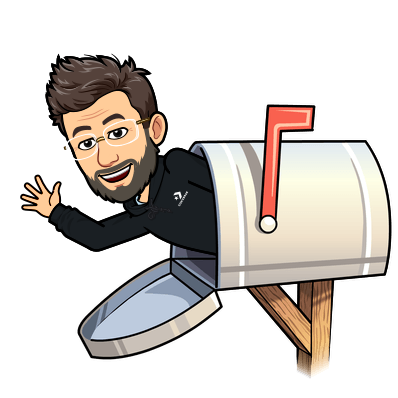Marketing
Warming Up Cold Contacts
Posted on 4th November 2008. I've been “tagged” by Ford Harding to take part in an interesting concept: a “blog meme” – a series of posts by different bloggers on the same topic.
I've been “tagged” by Ford Harding to take part in an interesting concept: a “blog meme” – a series of posts by different bloggers on the same topic.
So here goes……
Warming Up Cold Contacts
In “Managing the Professional Services Firm”, leading professional services guru David Maister labels cold calling as a third-tier “desperation” measure.Certainly the vast majority of professionals intensely dislike cold calling and are more than eager to accept the many pronouncements that “cold calling doesn't work”.
But the reality is that many professional service firms and sole practitioners have used cold calling very successfully to grow their practices.
One of the keys to making cold calling effective is to “warm up” the call beforehand. In many cases this means pre-establishing a fledgling relationship with the prospect before the call is made. Perhaps sending a letter or an article in advance, or getting an introduction form a mutual contact.
But there is another – often overlooked – method for ensuring your prospect is more receptive to receiving your call. It's simply to focus your calls on people who actually need your services.
It sounds ridiculously simple. Surely that's what everyone does anyway?
In reality, it's not. The majority of cold calling is to relatively unqualified prospects. Sure, they may be in a target industry, or be “likely” to need your services. But do they definitely need your services right now? Usually not.
And that's why most cold calls get rejected – the repeated experience of prospects that the call is a waste of time. We're an interruption to their busy schedules, and they've learnt that 9 times out of 10 a cold call is going to offer nothing of value to them. So they've learnt not to take calls from people they don't know.
But what if you could be sure that the majority of people you call actually do need your services – right now? If that was the case then in the first few seconds of the call you could establish your value and they would be willing to listen further. Instead of calling hundreds of prospects for a tiny and therefore uneconomic response, a small number of calls to highly qualified prospects would result in a high number of positive responses and follow-ups.
How can we do this? It really depends on the situation:
- For certain types of product or service we can use desk research to identify the customers who definitely need our service. For example, a consultant who specialises in helping technology start-ups find their first customers will almost always get a good reception when they make targeted calls to these types of firm.
- If emerging customer needs are visible from outside the client firm, this can be used to identify prospects with definite needs. For example, a “trigger event” such as a change in leadership or the divestment of a business can generate specific service needs.
- The “grapevine” – networks of allied professionals and service providers close to a target client can provide information on their specific needs.
- A “low risk” cold call can be made to staff lower down the organisation than the target prospect. By calling people less likely to reject the call, vital information and real insights can be gathered on the true needs of the prospect.
- Allowing prospects to self-select and identify themselves is also possible. For example the typical on-line strategy of using pay-per-click advertising to offer a free report or resource in a specific area will allow prospects with needs in that area to identify themselves.
Other methods are also possible – always following the principle of investing before the call to identify highly qualified prospects.
Of course, such a strategy isn't always possible. And it could be argued that such an investment in advanced research is more costly than simply calling a large number of loosely qualified prospects and finding out who's interested by trial and error.
But doing detailed qualification in advance does two very positive things.
Firstly, it gives the sales person confidence that they are likely to get a positive response from the people they are calling. This confidence will come across in the call and make the prospect more likely to listen – creating a virtuous circle of success.
Secondly – and to my mind more importantly – it shows respect for your clients. Even if it costs you more to do detailed research in advance that it would to call in a less qualified manner, it shows that you have prioritised your client's time over your own. It shows you care enough not to waste their time on a “fishing expedition”. Doesn't that in itself speak volumes about the kind of sales person you are?
Ian
Now, I'm tagging Craig Elias and Paul McCord – both of whom I'm sure will add their own unique insights to the meme.

